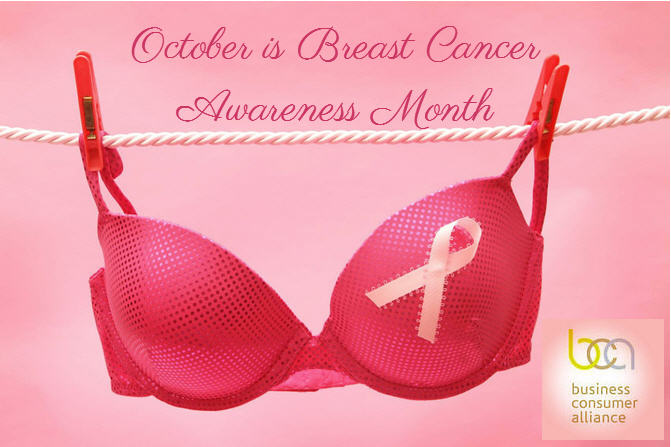Breast cancer is the most common cancer among American women. More than 200,000 women are diagnosed with it and it claims the lives of more than 40,000 women each year. While most cancers are discovered in women 50 and over, younger women have been affected
by this type of cancer.

There are multiple factors that can influence your risk of developing breast cancer, and many who have the disease have no apparent risk factors or history of the illness in their families. While risk factors alone do not necessarily mean you will get the
illness, taking steps to lower your risk of developing the disease is a proactive step in fighting the deadly effects breast cancer causes. Here are some tips that may help:
- Watch Your Weight. Have a discussion with your regular physician about what a healthy weight is for you and work toward maintaining that weight.
- Lights Out. Getting enough sleep on a regular basis helps lower the risk of developing many health problems. It can also help to improve your mood.
- Get and Stay Active. Develop a habit of exercising regularly. It is recommended to get at least four hours a week of exercise. That doesn’t mean you have to necessarily go to the gym. Regular activities like walking, playing outdoors, and
even housekeeping can keep you fit.
- Check Your Breasts. Discuss with your doctor how to do a
breast self-exam and do it regularly. Bear in mind that this may not be enough as some women have denser breast tissue which makes it difficult to detect small tumors. This is why it is best to also talk to your doctor about screening tests and which ones
may be right for you. Get examined regularly and make sure to keep follow-up appointments, especially if any test comes back abnormal. While screening can’t prevent breast cancer, early detection is a major factor in effective treatment.
- Limit Libations. Research has shown that drinking even low amounts of alcohol can increase the risk of breast cancer. Limiting the amount of alcohol you drink to no more than one drink a day or cutting alcohol out altogether may help decrease
that risk.
- Avoid or Reduce Exposure. Carcinogens are substances known to cause cancer. These agents are found in a wide range of places. Click here for a list of different cancer causing
agents classified by the International Agency for Research on Cancer. Try to reduce exposure to radiation used in tests like mammograms, X-rays, and CT scans.
- Know the Risks of Medicines and Treatments. Speak with your doctor about the potential risks of developing cancer if you are currently taking or considering taking birth control pills or hormone replacement therapy. Also, ask about other
medications you may be taking and their potential risks.
- Ask Mom. Knowing your family history can tell you if you are at higher risk of developing health issues. If close relatives have a history of breast cancer, there may be inherited factors that contribute to the development of the disease.
This information can be discussed with your doctor to determine other ways to lower your risk. Some information you may want to gather includes:
1. Do any of your biological relatives have cancer and, if so, which type?
2. At what age were each of these relatives diagnosed?
3. If the relative(s) was diagnosed with breast cancer, was it present in both breasts?
4. What treatment, if any, was prescribed and what were the effects?
There are several organizations that advocate putting an end to this horrible disease. They provide education, research data, as well as health and social services. For information on the disease, how it affects different ethnicities, risk factors, treatment
options, and other resources, visit some of the following websites:
Susan G. Koman
National Breast Cancer Awareness Foundation, Inc.
Center for Disease Control and Prevention
American Cancer Society
In part two of our coverage we will discuss ways to identify and avoid breast cancer awareness scams and pink ribbon promotions. Share this information with your contacts and don’t forget to follow us on Facebook,Twitter,
Google , and Pinterest.
About the Author:
Nicole Pitts is a Senior Business Analyst and Editor for Business Consumer Alliance. She has been with the organization for 12 years and specializes in report writing, business evaluation, and investigations. Nicole corresponds with businesses regarding
complaint trends and provides suggestions to help them alleviate problem areas that may cause concern. She also conducts advertisement reviews, reports on government enforcement actions, and assists government agencies and the media in obtaining information.
She enjoys reading, movies, and spending time with her family. Nicole may be reached by email at npitts@businessconsumeralliance.org.